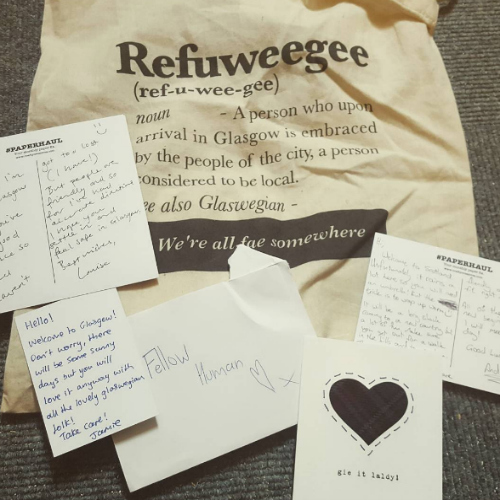A lot of the time when we talk about expats, an assumption is made that we are referring to people who have moved abroad through choice. Whether the underlying reason is relocating for work, following romance, retiring abroad, or just looking for a change of scenery, many who emigrate to a new country make the move because they choose to do so.However, for a significant number of people, the decision to move to a new country is a matter of life and death. According to the United Nations Office for the Coordination of Humanitarian Affairs, over 4.8 million people have been displaced from Syria due to war, and that is just one country. With a rise in people fleeing war prompting one of the largest refugee crises in living memory, emotions are running high, and many refugees are facing discrimination and feelings of being unwelcome on top of the terrible things they have already had to experience.
Luckily, not everyone is unwelcoming. Indeed, a recent study by GlobeScan found that many people would welcome refugees not just into their countries, but into their neighbourhoods and homes. In the UK, 29% of respondents said they would be happy to offer a room to a refugee, and 87% said they would be happy to let them into the country. In Germany, the figures were even higher, with 96% saying they would welcome people in need into the country.
As humans, however, we tend to find it easier to focus on the negative. And with countless tabloid headlines describing refugees in derogatory terms and trying to incite feelings of animosity from the British public, it is easy to see why refugees might feel unwelcome in the UK.
Selina Hales from Refuweegee is working to change this perception.
Based in Glasgow, the initiative takes its name from a portmanteau of two words: “Refugee” and “Weegie”, a colloquial term for a Glaswegian. The idea behind the name was to make refugees feel welcome, and to show them that as soon as they land in Glasgow, they can be brought into the fabric of Glaswegian life. And it seems that Glasgow is the perfect place to host such an initiative: not only is the city’s official slogan “People Make Glasgow”, but it has also won Rough Guides’ Friendliest City Award. Refuweegee wants to harness this feeling of friendliness and help to get across to refugees the message that once you’ve arrived in the city, you are a local and you are welcome.
What does Refuweegee do?
Refuweegee’s main work is distributing welcome packs to people who have recently arrived in Glasgow. These packs are individualised; making them specific to the people who will be receiving them helps to increase the feeling of having a personal welcome.
Each welcome pack contains:
– Some essential items, such as toiletries, stationery, maps of the city, reading material and an umbrella and warm clothing to fend off the Scottish weather;
– Some small items that make Glaswegians think of home, such as Irn-Bru and Tunnock’s Teacakes;
– A “Letter Fae A Local”, in which a Glaswegian writes a letter to a refugee, welcoming them to the city and embracing them as part of the community;
– A stamped addressed envelope and a note encouraging the refugees to tell Refuweegee what they need, and to share their experiences from their communities back home.

The welcome packs are distributed through various organisations who work in tandem with Refuweegee. These include the Scottish Refugee Council, Migrant Help, and City Councils. Generally, the people who receive the welcome packs have already been in contact with one or more of these organisations. It is important for Refuweegee to allow people to engage without being pushy, says its founder Selina, to make people’s arrivals as gentle and easy as possible.
But having set up a brilliant initiative already, Refuweegee shows no signs of slowing down. A drop-in service is about to be launched in coalition with the Scottish Refugee Council, so that clients can be referred to friendly locals who want to help out.
The social work teams in Glasgow also take welcome packs with them to the airport when they know refugees will be arriving. Many of them are families with children, and they usually have very few possessions when they arrive. The special welcome packs for the airports include things to keep the children amused while their parents are with the social work team, such as teddy bears, stickers and colouring books.
Setting up such an initiative as this is a nerve-wracking process, especially in the beginning when the reaction from the public cannot be guaranteed. But the response Refuweegee has been met with from the people of Glasgow has been heart-warming: many people have reached out through social media and expressed their joy at being able to do something about a situation in which they previously felt powerless.
It is easy when watching humanitarian crises on the news to feel overwhelmed, like there is nothing you can do to help at all, and Refuweegee gives people a chance to realise that this is not the case. Some of the most poignant ways to help a large-scale crisis is through small actions: the connections between people that remind us that, at base, we are all humans; all equal.
The ambition for Refuweegee is that it eventually becomes unnecessary. We shouldn’t be focusing on how to make this project bigger, explains its founder. We should instead be focusing on making the problem no longer a problem; building a world where people can move and be accepted freely, and where people no longer need to flee for their lives.
Selina sums it up perfectly: “ we're all human beings. We need every now and again to take a step back and just be kind to ourselves and others like us. The minute that we step back from our busy lives and just consider where we came from, where the person we're looking at came from, we [realise that we] all started in the same place. We're all from somewhere – there should be no barriers to that."
You can find out more about Refuweegee at refuweegee.co.uk and follow this community-led project on Facebook, Twitter and Instagram.

